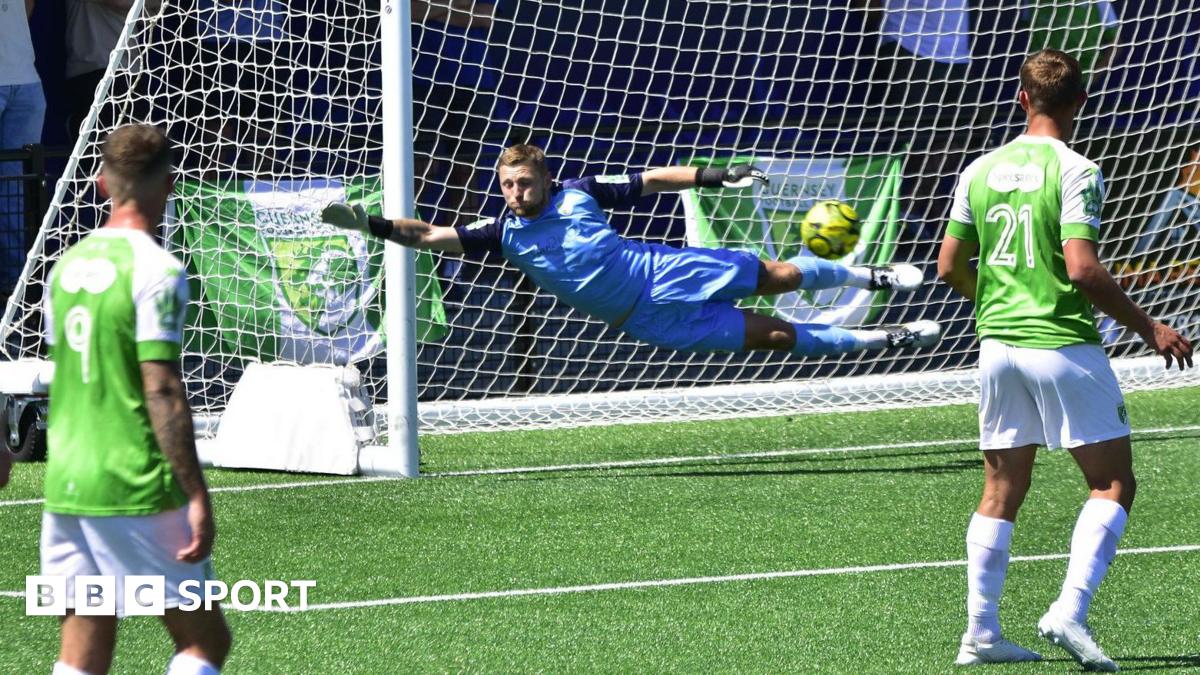Guernsey FC expelled from FA Cup after playing ineligible player
Guernsey FC have been expelled from the FA Cup after fielding an ineligible player.
The islanders drew 1-1 with Bedfont Sports on Saturday in the extra preliminary round of the competition – their first competitive game of the season.
But on Monday the club released a statement saying they had found a registration error with one of the side that played in the club’s first FA Cup match in eight years.
It led to Tuesday’s planned replay between the two sides in London being postponed pending the outcome of an investigation.
“We have just received official confirmation that the club has been removed from this season’s competition, and that Bedfont Sports Club FC has been awarded the tie and will progress to the Preliminary Round,” a Guernsey FC statement read.
Bedfont Sports will host Kingstonian on 16 August.
Guernsey FC’s next game will be their first ever match in the Southern Combination Premier Division when they host Wick at Victoria Park on Saturday.
It is the second time this year that a Channel Island side has been sanctioned for fielding an ineligible player.
In April Jersey Bulls were docked three points for playing a player that should have been suspended in a Combined Counties Premier South game – a decision that cost them the league title.
The club subsequently won promotion to Isthmian League South East via the play-offs.


